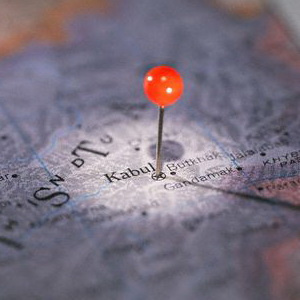Rethink before It’s Too Late

It is no more a surprise to see Iran absent in Afghanistan affairs. Nowadays, the Bonn Conference and Iran’s contributions to Afghanistan look more like a fading memory. Iran, which had promised of loans and credit worth five-hundred million dollars for Afghanistan, and tried to serve a key role, more than many other countries, for reconstruction and stabilization of Afghanistan, is now trying to efface that memory, saying it is a wrong path, even for the international community.
Iran’s empty seat in the Rome Conference was another step backward for Afghanistan’s influential neighbor. Many other countries were surprised with Iran’s absence. Finding out the vanity of its efforts to justify absence in Rome, Iran tried to start its unique diplomatic initiative. While most experts believe in the higher efficiency of an international attitude towards Afghanistan’s problems, Iran wants to rely on an Iran-centered or neighbors-centered way of dealing with the problem. Meeting between foreign ministers of Iran, Pakistan and Afghanistan in Islamabad was the fruit of this point of view.
The London Conference could make up for the vacuum felt due to Iran’s non-cooperative behavior towards the international community, but it turned into another instance of Iran’s diplomatic apparatus lethargy. That is when prior to the conference in Britain, a trilateral ‘summit’ was held between Turkey, Afghanistan and Pakistan in Istanbul. Another step for Turkey to turn into the new leader of the Muslim World and the mediator between Islam and West. Turkey’s presence in the post-Taliban Afghanistan despite the non-existence of shared borders is intelligent, with cultural and economic priority and based on a support for the small Uzbek minority.
After the fall of Taliban and presidency of Hamed Karzai, Turkey exhibited strong military and economic presence in Afghanistan. Turks are now a key player in the reconstruction process. Looking from an economic viewpoint, even the deployment of Turkish troop is to support the financial security of investors and businessmen who are involved in construction projects. Seven-hundred Turkish soldiers are the guardians of Turkey’s economic plans in Afghanistan.
The significance of London Conference lied in its timing. It was right after Obama announced his new Afghanistan policy, thus it served as a forum to discuss how to control and direct new operations in collaboration with the international community and Afghanistan’s neighbors. ‘Coordination of efforts’ was in fact the key objective of the London Conference and we see how Iran easily lost that opportunity. Political, economic and cultural chances were squandered and now we have to look at the futile multilateral meetings whose only achievement is the release of joint communiqués.
Iran may be critical towards the policies of NATO and West in Afghanistan, but could that justify its absence and indolence in international processes? Doesn’t Iran consider itself the most influential global player in Afghanistan? Doesn’t it believe that any decision it has not been consulted about will end in failure? So why is it sitting at a corner instead of helping, and watching other countries fighting for the bigger share?
Iran’s decision to become the diplomatic hub for international Afghanistan policies is interesting, but only in papers and seminars. But there is definitely a difference between international diplomacy and good-for-college speeches. Diplomatic dreams with no feasibility can only enjoy the audience clap. Diplomatic smiles can never function as pragmatic strategies.
Iran’s diplomatic apparatus should seriously revise the diplomatic approach towards its strategic depth. Otherwise, sooner or later it will have to pay a high price to compensate for being left behind by the international community. In diplomacy you cannot take back the time. Your cards today may fall in hands of your opponent tomorrow.

